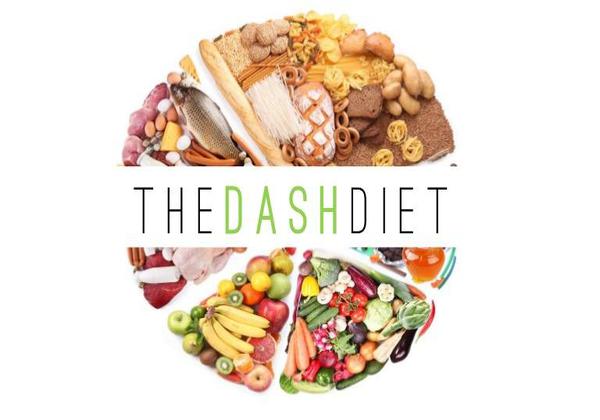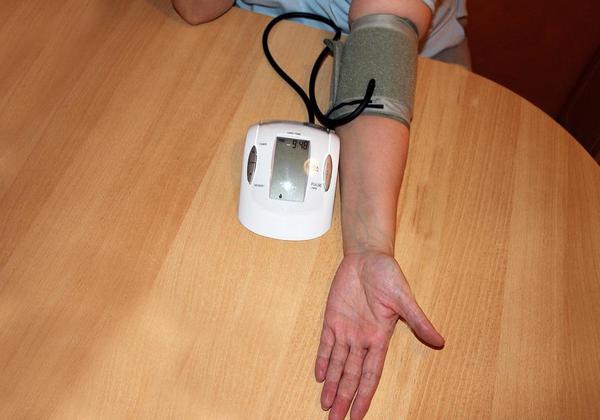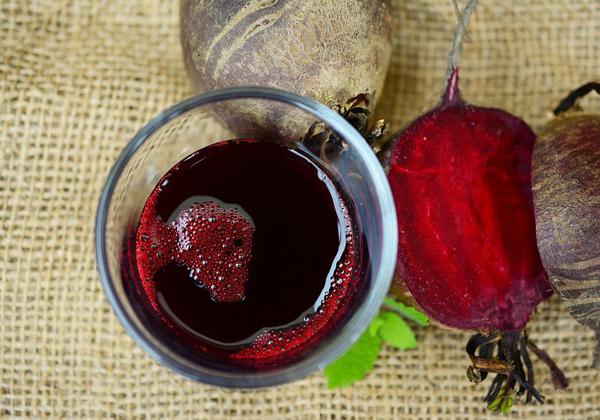NEW YORK: High blood pressure before conception and early in pregnancy may increase the risk of pregnancy loss, even if the woman does not have a hypertension diagnosis, new research has found.
"Elevated blood pressure among young adults is associated with a higher risk of heart disease later in life, and this study suggests it may also have an effect on reproductive health," said lead author of the study Carrie Nobles from Eunice Kennedy Shriver National Institute for Child Health and Human Development (NICHD) in Maryland, US.
Millimeter of mercury, or mm Hg, is the unit of measure used for blood pressure.
The findings, published in the journal Hypertension, showed that for every 10 mm Hg increase in diastolic blood pressure (pressure when the heart is resting between beats), there was 18 per cent higher risk for pregnancy loss among the study population.
The researchers also found a 17 per cent increase in pregnancy loss for every 10 mm Hg increase in mean arterial pressure, a measure of the average pressure in the arteries during full heart beat cycles.
The researcher studied more than 1,200 women who had already experienced one or two pregnancy losses and were trying to become pregnant.
The findings were similar for preconception and early-pregnancy blood pressure.
"The impact of cardiovascular risk factors starts really early in life. Physicians treating women of reproductive age should pay attention to slightly elevated blood pressure because it may have other not-well-recognised effects, such as adverse pregnancy outcome," said senior author of the study Enrique Schisterman from NICHD.
"Preconception is a previously unrecognized critical window for intervention such as lifestyle changes that can help prevent later heart disease and may also improve reproductive health," Schisterman said.

In the world full of weight loss diet, we have the Dietary Approaches to Stop Hypertension, or the DASH diet, which is believed to help treat hypertension or high blood pressure. The DASH diet encourages you to reduce sodium intake in your diet and add more variety of foods rich in nutrients that help reduce blood pressure levels. Is this diet effective? What does it really preach? Does it compromise on what is called a 'balanced diet?' Let's find out.
What is DASH Diet?
Also known as Dietary Approaches to Stop Hypertension, this diet focuses on reducing your blood pressure levels and encourages healthy eating. It promotes eating less sodium and loading up on potassium, magnesium and calcium rich to regulate blood pressure. According to the Mayo Clinic, the DASH diet is a healthy way of eating; it offers health benefits just lowering blood pressure. The DASH diet is said to be in line with dietary recommendations to prevent osteoporosis, heart disease, stroke, diabetes and cancer.
DASH diet is altered according to the dietary needs of the person and the intensity of hypertension. Therefore, in addition to the standard DASH diet, which allows you to consume up to 2,300 milligram of sodium a day, there is a lower version of the diet. Here's what the two versions have to offer:
Standard DASH diet: One can consume up to 2,300 milligrams of sodium per day
Lower sodium DASH diet: One can consume up to 1,500 milligrams of sodium per day
Both the versions aim at reducing the amount of sodium, which further helps in reducing blood pressure levels and the risk of developing other cardiovascular diseases.
What does the DASH diet recommend eating?
This diet is plant-focused that is rich in vegetables, fruits and nuts along with low-fat and non-fat dairy products, which are great sources of healthy fats. Basically, the diet emphasises lowering sodium intake by eating whole foods over processed foods.
Does the DASH diet work?
The DASH diet outlines a generally healthy diet that anyone can benefit from. Its basic principle is to eat a nutrient rich yet not calorie-dense diet, which has shown to not only reduce blood pressure levels but also promote weight loss. The American Heart Association (AHA) also recommends this diet and according to it, "In addition to being easy to follow, delicious and varied, the DASH eating plan is proven effective." The AHA promotes eating and avoiding the following foods-
Aim to eat foods like:
-Fruits
-Vegetables
-Whole grains
-Low fat dairy products
-Nuts and legumes
-Non-tropical vegetable oils
-Skinless poultry and fish
-Saturated trans fat
-Sodium
-Red meat
-Sweet and sugar-sweetened beverages
Don't let high blood pressure scare you. It is not exactly a disease, but only a warning sign that the food you have been eating and the lifestyle you have been leading have clogged your blood vessels and your heart is having to exert extra pressure to keep blood moving through it.
Just as the bad lifestyle caused it, the good one can cure it. Medicines are only an aid. The main job has to be done by your food. So please go into your kitchen for treatment. Certain ingredients are excellent in opening up your arteries and those should be a regular part of your diet from now.
The most potent of them is beetroot juice. A glass of this should be a daily part of your intake. Treat this as your daily medicine. You might see a drop in your readings in as little as three hours. Beets are full of nitrates which cause blood vessels to expand. Besides reducing blood pressure, these eliminate toxins. Taking nitrate in natural form is a hundred times better than taking a nitrate tablet. Nitrites in foods like hot dogs gave you the disease; nitrates will cure it.
Those who happen to have kidney issues should mix it with carrot juice. Regular use may give a sharp colour to your urine. Don't be scared. That is completely harmless.
Please note that the results will not come in a day. It took you some 15 years to clog your arteries. Please give your system at least 15 months to undo the damage. Of course, medicines can show results in a matter of days but you have to account for side-effects also. So follow a two-pronged strategy. Let medicines do the SOS job. The long-term cure will come only through dietary wisdom.
Another prescribed diet is blueberries, raspberries and strawberries. Natural compounds in them called anchocyanins are your insurance against hypertension. Eat them like crazy every day of your life. Fresh will be the best but the dried ones will also do. Besides, those are full of antioxidants.
I know it will not make you very popular with friends but garlic too has to be added to your menu. The organosulphur compound allicin that it has reduces hypertension and is also antibacterial and anti fungal. The pungent clove is also very good for those with heart conditions.
Other good foods for those with blood pressure are bananas, dark chocolate (and I mean really dark, at least 85 percent), spinach, cabbage and coconut water. Plus spice up your food with rosemary, cumin seeds, cinnamon, basil, bay leaves, saffron, turmeric, ginger and black pepper.
But the best antidote for blood pressure is weight management. If you are on the plump side, you are almost sending a written invitation to blood pressure.

You probably know that high blood pressure, or hypertension, is a major risk factor for heart attack, stroke, vision problems, even dementia.
But did you know this? Hand-grip exercises - squeezing one of those V-shape devices with a resistance spring - can lower your blood pressure by about 10 percent.
That's one of the "15 Things You Better Know About Your Blood Pressure" that AARP reports in the June issue of its Bulletin publication and at aarp.org.
It cites a "landmark" paper published in 2013 in Hypertension, a journal of the American Heart Association, which said that while all exercise did good things for blood pressure, "some of the most impressive improvements" came after four weeks of hand-grip squeezing.
AARP suggests squeezing the gripper for two minutes at a time for a total of 12 to 15 minutes, three times a week. You can get one at a sporting goods store for about $10 or $20.
AARP is interested because blood pressure typically rises as we age, and two-thirds of Americans older than 60 are in the "high" zone (140/90 and up.) But about a third of people in their 30s and 40s have hypertension, too.
Some other items from AARP's list of things to know:
1) Some over-the-counter medications can raise blood pressure by several points. These include cold medicines that contain pseudoephedrine and nonsteroidal anti-inflammatories such as ibuprofen.
2) Deep breathing - slowing down to about six breaths in 30 seconds - can take three points off your systolic pressure. That's the top number in your blood pressure reading. It's the one to watch as you get older, because the bottom number, your diastolic pressure, peaks at about age 55 and gradually falls.
4) High blood pressure often has no symptoms. You probably knew that, too, but it's the kind of thing you forget because - well, because you have no symptoms. So get it checked.
Beetroot is known for its incredible vibrant colour and hence it is used in salads as well as many recipes. This awesome pinkish red colour comes from a pigment called betanin which is often extracted to create natural food colouring and dyes.
Here are some benefits of including beetroot in your diet:-
- It is rich in antioxidants: Antioxidants like betanin & polyphenols in beetroot reduce the oxidation of bad cholesterol, protect the artery walls and guard against #HeartDisease and #Stroke.
- It helps in detoxification: It detoxifies your body by pulling the toxins into the colon from where they can be evacuated. Beetroot juice might also stimulate red blood cell production and build #stamina.
- Folate, Fiber, Vitamin C and other minerals: Beetroot is a great source of fiber and minerals like iron, potassium and manganese which are essential for good health and in combination with other foods it can deliver a lot. #VitaminC boosts #immunity, #folate is essential for normal tissue growth and fiber helps in smooth #digestive functions. It is particularly high in #protein and #iron than most other roots & tubers.
- For Heart health: Studies have shown that the high content of nitrates in beetroot produces a gas called nitric oxide. This gas helps to relax and dilate your blood vessels which improves blood flow and lowers #BloodPressure.
- For Hair care: Beetroot is actually one of the best home remedies to fight the flakes and an itchy scalp. You can boil some beets in water and use the concentrated liquid to massage on the scalp. Alternatively, you can mix some beetroot juice, vinegar and ginger juice and apply to the scalp. Keep this for 20 mins and rinse.
- Low in fat & calories: Although it has a high sugar content, it is low in calories & almost fat free. Since it is loaded with fiber it makes you full on lower calories. This makes it a nutritious option for those looking to keep their weight down.










